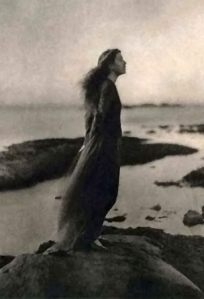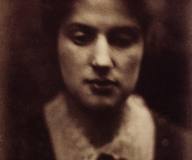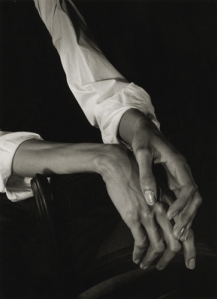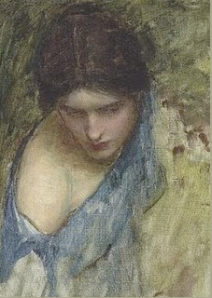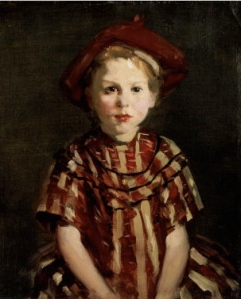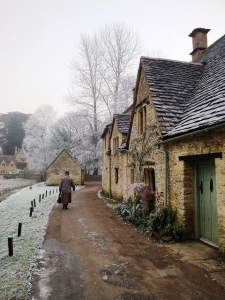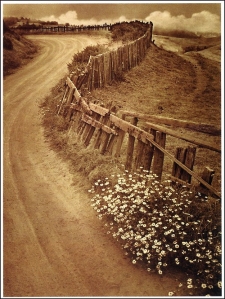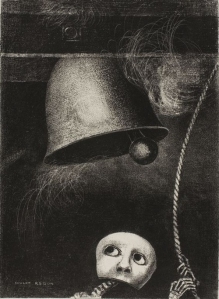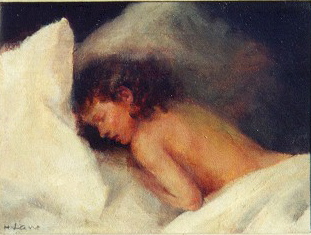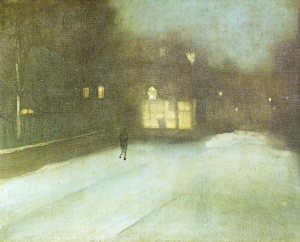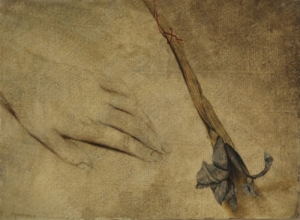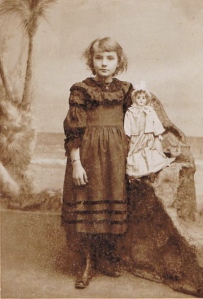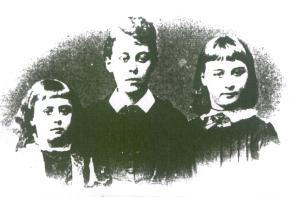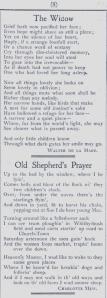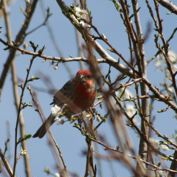
Honoré Balzac (May 20 1799 – August 16 1850)
 “Ah! madame,” replied the doctor, “I have some appalling stories in my collection. But each one has its proper hour in a conversation–you know the pretty jest recorded by Chamfort, and said to the Duc de Fronsac: ‘Between your sally and the present moment lie ten bottles of champagne.'”
“Ah! madame,” replied the doctor, “I have some appalling stories in my collection. But each one has its proper hour in a conversation–you know the pretty jest recorded by Chamfort, and said to the Duc de Fronsac: ‘Between your sally and the present moment lie ten bottles of champagne.'”
“But it is two in the morning, and the story of Rosina has prepared us,” said the mistress of the house.
“Tell us, Monsieur Bianchon!” was the cry on every side.
The obliging doctor bowed, and silence reigned.
“At about a hundred paces from Vendome, on the banks of the Loir,” said he, “stands an old brown house, crowned with very high roofs, and so completely isolated that there is nothing near it, not even a fetid tannery or a squalid tavern, such as are commonly seen outside small towns. In front of this house is a garden down to the river, where the  box shrubs, formerly clipped close to edge the walks, now straggle at their own will. A few willows, rooted in the stream, have grown up quickly like an enclosing fence, and half hide the house. The wild plants we call weeds have clothed the bank with their beautiful luxuriance. The fruit-trees, neglected for these ten years past, no longer bear a crop, and their suckers have formed a thicket. The espaliers are like a copse. The paths, once graveled, are overgrown with purslane; but, to be accurate there is no trace of a path.
box shrubs, formerly clipped close to edge the walks, now straggle at their own will. A few willows, rooted in the stream, have grown up quickly like an enclosing fence, and half hide the house. The wild plants we call weeds have clothed the bank with their beautiful luxuriance. The fruit-trees, neglected for these ten years past, no longer bear a crop, and their suckers have formed a thicket. The espaliers are like a copse. The paths, once graveled, are overgrown with purslane; but, to be accurate there is no trace of a path.
“Looking down from the hilltop, to which cling the ruins of the old castle of the Dukes of Vendome, the only spot whence the eye can see into this enclosure, we think that at a time, difficult now to determine, this spot of earth must have been the joy of some country gentleman devoted to roses and tulips, in a word, to horticulture, but above all a lover of choice fruit. An arbor is visible, or rather the wreck of an arbor, and under it a table still stands not entirely destroyed by time. At the aspect of this garden that is no more, the negative joys of the peaceful life of the provinces may be divined as we divine the history of a worthy tradesman when we read the epitaph on his tomb. To complete the mournful and tender impressions which seize the soul, on one of the walls there is a sundial graced with this homely Christian motto, ‘Ultimam cogita.’
 “The roof of this house is dreadfully dilapidated; the outside shutters are always closed; the balconies are hung with swallows’ nests; the doors are for ever shut. Straggling grasses have outlined the flagstones of the steps with green; the ironwork is rusty. Moon and sun, winter, summer, and snow have eaten into the wood, warped the boards, peeled off the paint. The dreary silence is broken only by birds and cats, polecats, rats, and mice, free to scamper round, and fight, and eat each other. An invisible hand has written over it all: ‘Mystery.’
“The roof of this house is dreadfully dilapidated; the outside shutters are always closed; the balconies are hung with swallows’ nests; the doors are for ever shut. Straggling grasses have outlined the flagstones of the steps with green; the ironwork is rusty. Moon and sun, winter, summer, and snow have eaten into the wood, warped the boards, peeled off the paint. The dreary silence is broken only by birds and cats, polecats, rats, and mice, free to scamper round, and fight, and eat each other. An invisible hand has written over it all: ‘Mystery.’
“If, prompted by curiosity, you go to look at this house from the street, you will see a large gate, with a round-arched top; the children have made many holes in it. I learned later that this door had been blocked for ten years. Through these irregular breaches you will see that the side towards the courtyard is in perfect harmony with the side towards the garden. The same ruin prevails. Tufts of weeds outline the paving-stones; the walls are scored by enormous cracks, and the blackened coping is laced with a thousand festoons of pellitory. The stone steps are disjointed; the bell-cord is rotten; the gutter-spouts broken. What fire from heaven could have fallen there? By what decree has salt been sown on this dwelling? Has God been mocked here? Or was France betrayed? These are the questions we ask ourselves. Reptiles crawl over it, but give no reply. This empty and deserted house is a vast enigma of which the answer is known to none.
“It was formerly a little domain, held in fief, and is known as La Grande Breteche. During my stay at Vendome, where Despleins  had left me in charge of a rich patient, the sight of this strange dwelling became one of my keenest pleasures. Was it not far better than a ruin? Certain memories of indisputable authenticity attach themselves to a ruin; but this house, still standing, though being slowly destroyed by an avenging hand, contained a secret, an unrevealed thought. At the very least, it testified to a caprice. More than once in the evening I boarded the hedge, run wild, which surrounded the enclosure. I braved scratches, I got into this ownerless garden, this plot which was no longer public or private; I lingered there for hours gazing at the disorder. I would not, as the price of the story to which this strange scene no doubt was due, have asked a single question of any gossiping native. On that spot I wove delightful romances, and abandoned myself to little debauches of melancholy which enchanted me.
had left me in charge of a rich patient, the sight of this strange dwelling became one of my keenest pleasures. Was it not far better than a ruin? Certain memories of indisputable authenticity attach themselves to a ruin; but this house, still standing, though being slowly destroyed by an avenging hand, contained a secret, an unrevealed thought. At the very least, it testified to a caprice. More than once in the evening I boarded the hedge, run wild, which surrounded the enclosure. I braved scratches, I got into this ownerless garden, this plot which was no longer public or private; I lingered there for hours gazing at the disorder. I would not, as the price of the story to which this strange scene no doubt was due, have asked a single question of any gossiping native. On that spot I wove delightful romances, and abandoned myself to little debauches of melancholy which enchanted me.
 If I had known the reason–perhaps quite commonplace–of this neglect, I should have lost the unwritten poetry which intoxicated me. To me this refuge represented the most various phases of human life, shadowed by misfortune; sometimes the peace of the graveyard without the dead, who speak in the language of epitaphs; one day I saw in it the home of lepers; another, the house of the Atridae; but, above all, I found there provincial life, with its contemplative ideas, its hour-glass existence. I often wept there, I never laughed.
If I had known the reason–perhaps quite commonplace–of this neglect, I should have lost the unwritten poetry which intoxicated me. To me this refuge represented the most various phases of human life, shadowed by misfortune; sometimes the peace of the graveyard without the dead, who speak in the language of epitaphs; one day I saw in it the home of lepers; another, the house of the Atridae; but, above all, I found there provincial life, with its contemplative ideas, its hour-glass existence. I often wept there, I never laughed.
“More than once I felt involuntary terrors as I heard overhead the dull hum of the wings of some hurrying wood-pigeon. The earth is dank; you must be on the watch for lizards, vipers, and frogs, wandering about with the wild freedom of nature; above all, you must have no fear of cold, for in a few moments you feel an icy cloak settle on your shoulders, like the Commendatore’s hand on Don Giovanni’s neck.
“One evening I felt a shudder; the wind had turned an old rusty weathercock, and the creaking sounded like a cry from the house, at the very moment when I was finishing a gloomy drama to account for this monumental embodiment of woe. I returned to my inn, lost in gloomy thoughts. When I had supped, the hostess came into my room with an air of mystery, and said, ‘Monsieur, here is Monsieur Regnault.’
“‘Who is Monsieur Regnault?’
“‘What, sir, do you not know Monsieur Regnault?–Well, that’s odd,’ said she, leaving the room.
“On a sudden I saw a man appear, tall, slim, dressed in black, hat in hand, who came in like a ram ready to butt his opponent, showing a receding forehead, a small pointed head, and a colorless face of the hue of a glass of dirty water. You would have taken him for an usher. The stranger wore an old coat, much worn at the seams; but he had a diamond in his shirt frill, and gold rings in his ears.
“‘Monsieur,’ said I, ‘whom have I the honor of addressing?’–He took a chair, placed himself in front of my fire, put his hat on my table, and answered while he rubbed his hands: ‘Dear me, it is very cold. –Monsieur, I am Monsieur Regnault.’
 “I was encouraging myself by saying to myself, ‘Il bondo cani! Seek!’
“I was encouraging myself by saying to myself, ‘Il bondo cani! Seek!’
“‘I am,’ he went on, ‘notary at Vendome.’
“‘I am delighted to hear it, monsieur,’ I exclaimed. ‘But I am not in a position to make a will for reasons best known to myself.’
“‘One moment!’ said he, holding up his hand as though to gain silence. ‘Allow me, monsieur, allow me! I am informed that you sometimes go to walk in the garden of la Grande Breteche.’
“‘Yes, monsieur.’
“‘One moment!’ said he, repeating his gesture. ‘That constitutes a misdemeanor. Monsieur, as executor under the will of the late Comtesse de Merret, I come in her name to beg you to discontinue the practice. One moment! I am not a Turk, and do not wish to make a crime of it. And besides, you are free to be ignorant of the circumstances which compel me to leave the finest mansion in Vendome to fall into ruin. Nevertheless, monsieur, you must be a man of  education, and you should know that the laws forbid, under heavy penalties, any trespass on enclosed property. A hedge is the same as a wall. But, the state in which the place is left may be an excuse for your curiosity. For my part, I should be quite content to make you free to come and go in the house; but being bound to respect the will of the testatrix, I have the honor, monsieur, to beg that you will go into the garden no more. I myself, monsieur, since the will was read, have never set foot in the house, which, as I had the honor of informing you, is part of the estate of the late Madame de Merret. We have done nothing there but verify the number of doors and windows to assess the taxes I have to pay annually out of the funds left for that purpose by the late Madame de Merret. Ah! my dear sir, her will made a great commotion in the town.’
education, and you should know that the laws forbid, under heavy penalties, any trespass on enclosed property. A hedge is the same as a wall. But, the state in which the place is left may be an excuse for your curiosity. For my part, I should be quite content to make you free to come and go in the house; but being bound to respect the will of the testatrix, I have the honor, monsieur, to beg that you will go into the garden no more. I myself, monsieur, since the will was read, have never set foot in the house, which, as I had the honor of informing you, is part of the estate of the late Madame de Merret. We have done nothing there but verify the number of doors and windows to assess the taxes I have to pay annually out of the funds left for that purpose by the late Madame de Merret. Ah! my dear sir, her will made a great commotion in the town.’
“The good man paused to blow his nose. I respected his volubility, perfectly understanding that the administration of Madame de Merret’s estate had been the most important event of his life, his reputation, his glory, his Restoration. As I was forced to bid farewell to my beautiful reveries and romances, I was to reject learning the truth on official authority.
“‘Monsieur,’ said I, ‘would it be indiscreet if I were to ask you the reasons for such eccentricity?’
 “At these words an expression, which revealed all the pleasure which men feel who are accustomed to ride a hobby, overspread the lawyer’s countenance. He pulled up the collar of his shirt with an air, took out his snuffbox, opened it, and offered me a pinch; on my refusing, he took a large one. He was happy! A man who has no hobby does not know all the good to be got out of life. A hobby is the happy medium between a passion and a monomania. At this moment I understood the whole bearing of Sterne’s charming passion, and had a perfect idea of the delight with which my uncle Toby, encouraged by Trim, bestrode his hobby-horse.
“At these words an expression, which revealed all the pleasure which men feel who are accustomed to ride a hobby, overspread the lawyer’s countenance. He pulled up the collar of his shirt with an air, took out his snuffbox, opened it, and offered me a pinch; on my refusing, he took a large one. He was happy! A man who has no hobby does not know all the good to be got out of life. A hobby is the happy medium between a passion and a monomania. At this moment I understood the whole bearing of Sterne’s charming passion, and had a perfect idea of the delight with which my uncle Toby, encouraged by Trim, bestrode his hobby-horse.
“‘Monsieur,’ said Monsieur Regnault, ‘I was head-clerk in Monsieur Roguin’s office, in Paris.
A first-rate house, which you may have heard mentioned? No! An unfortunate bankruptcy made it famous.–Not having money enough to purchase a practice in Paris at the price to which they were run up in 1816, I came here and bought my predecessor’s business. I  had relations in Vendome; among others, a wealthy aunt, who allowed me to marry her daughter.–Monsieur,’ he went on after a little pause, ‘three months after being licensed by the Keeper of the Seals, one evening, as I was going to bed–it was before my marriage–I was sent for by Madame la Comtesse de Merret, to her Chateau of Merret. Her maid, a good girl, who is now a servant in this inn, was waiting at my door with the Countess’ own carriage. Ah! one moment! I ought to tell you that Monsieur le Comte de Merret had gone to Paris to die two months before I came here. He came to a miserable end, flinging himself into every kind of dissipation. You understand?
had relations in Vendome; among others, a wealthy aunt, who allowed me to marry her daughter.–Monsieur,’ he went on after a little pause, ‘three months after being licensed by the Keeper of the Seals, one evening, as I was going to bed–it was before my marriage–I was sent for by Madame la Comtesse de Merret, to her Chateau of Merret. Her maid, a good girl, who is now a servant in this inn, was waiting at my door with the Countess’ own carriage. Ah! one moment! I ought to tell you that Monsieur le Comte de Merret had gone to Paris to die two months before I came here. He came to a miserable end, flinging himself into every kind of dissipation. You understand?
“‘On the day when he left, Madame la Comtesse had quitted la Grand Breteche, having dismantled it. Some people even say that she had burnt all the furniture, the hangings–in short, all the chattels and furniture whatever used in furnishing the premises now let by the said M.–(Dear, what am I saying? I beg your pardon, I thought I was dictating a  lease.)–In short, that she burnt everything in the meadow at Merret. Have you been to Merret, monsieur?–No,’ said he, answering himself, ‘Ah, it is a very fine place.’
lease.)–In short, that she burnt everything in the meadow at Merret. Have you been to Merret, monsieur?–No,’ said he, answering himself, ‘Ah, it is a very fine place.’
“‘For about three months previously,’ he went on, with a jerk of his head, ‘the Count and Countess had lived in a very eccentric way; they admitted no visitors; Madame lived on the ground-floor, and Monsieur on the first floor. When the Countess was left alone, she was never seen excepting at church. Subsequently, at home, at the chateau, she refused to see the friends, whether gentlemen or ladies, who went to call on her. She was already very much altered when she left la Grande Breteche to go to Merret. That dear lady–I say dear lady, for it was she who gave me this diamond, but indeed I saw her but once–that kind lady was very ill; she had, no doubt, given up all hope, for she died without choosing to send for a doctor; indeed, many of our ladies fancied she was not quite right in her head. Well, sir, my curiosity was strangely excited by hearing that Madame de Merret had need of my services. Nor was I the only person who took an interest in the affair. That very night, though it was already late, all the town knew that I was going to Merret.
“‘The waiting-woman replied but vaguely to the questions I asked her on the way; nevertheless, she told me that her mistress had received the Sacrament in the course of  the day at the hands of the Cure of Merret, and seemed unlikely to live through the night. It was about eleven when I reached the chateau. I went up the great staircase. After crossing some large, lofty, dark rooms, diabolically cold and damp, I reached the state bedroom where the Countess lay. From the rumors that were current concerning this lady (monsieur, I should never end if I were to repeat all the tales that were told about her), I had imagined her a coquette. Imagine, then, that I had great difficulty in seeing her in the great bed where she was lying. To be sure, to light this enormous room, with old-fashioned heavy cornices, and so thick with dust that merely to see it was enough to make you sneeze, she had only an old Argand lamp. Ah! but you have not been to Merret. Well, the bed is one of those old world beds, with a high tester hung with flowered chintz. A small table stood by the bed, on which I saw an “Imitation of Christ,” which, by the way, I bought for my wife, as well as the lamp. There were also a deep armchair for her confidential maid, and two small chairs. There was no fire. That was all the furniture, not enough to fill ten lines in an inventory.
the day at the hands of the Cure of Merret, and seemed unlikely to live through the night. It was about eleven when I reached the chateau. I went up the great staircase. After crossing some large, lofty, dark rooms, diabolically cold and damp, I reached the state bedroom where the Countess lay. From the rumors that were current concerning this lady (monsieur, I should never end if I were to repeat all the tales that were told about her), I had imagined her a coquette. Imagine, then, that I had great difficulty in seeing her in the great bed where she was lying. To be sure, to light this enormous room, with old-fashioned heavy cornices, and so thick with dust that merely to see it was enough to make you sneeze, she had only an old Argand lamp. Ah! but you have not been to Merret. Well, the bed is one of those old world beds, with a high tester hung with flowered chintz. A small table stood by the bed, on which I saw an “Imitation of Christ,” which, by the way, I bought for my wife, as well as the lamp. There were also a deep armchair for her confidential maid, and two small chairs. There was no fire. That was all the furniture, not enough to fill ten lines in an inventory.
“‘My dear sir, if you had seen, as I then saw, that vast room, papered and hung with brown, you would have felt yourself transported into a scene of a romance. It was icy, nay more, funereal,’ and he lifted his hand with a theatrical gesture and paused.
“‘By dint of seeking, as I approached the bed, at last I saw Madame de Merret, under the glimmer of the lamp, which fell on the  pillows. Her face was as yellow as wax, and as narrow as two folded hands. The Countess had a lace cap showing her abundant hair, but as white as linen thread. She was sitting up in bed, and seemed to keep upright with great difficulty. Her large black eyes, dimmed by fever, no doubt, and half-dead already, hardly moved under the bony arch of her eyebrows.–There,’ he added, pointing to his own brow. ‘Her forehead was clammy; her fleshless hands were like bones covered with soft skin; the veins and muscles were perfectly visible. She must have been very handsome; but at this moment I was startled into an indescribable emotion at the sight. Never, said those who wrapped her in her shroud, had any living creature been so emaciated and lived. In short, it was awful to behold! Sickness so consumed that woman, that she was no more than a phantom.
pillows. Her face was as yellow as wax, and as narrow as two folded hands. The Countess had a lace cap showing her abundant hair, but as white as linen thread. She was sitting up in bed, and seemed to keep upright with great difficulty. Her large black eyes, dimmed by fever, no doubt, and half-dead already, hardly moved under the bony arch of her eyebrows.–There,’ he added, pointing to his own brow. ‘Her forehead was clammy; her fleshless hands were like bones covered with soft skin; the veins and muscles were perfectly visible. She must have been very handsome; but at this moment I was startled into an indescribable emotion at the sight. Never, said those who wrapped her in her shroud, had any living creature been so emaciated and lived. In short, it was awful to behold! Sickness so consumed that woman, that she was no more than a phantom.
Her lips, which were pale violet, seemed to me not to move when she spoke to me.
“‘Though my profession has familiarized me with such spectacles, by calling me not infrequently to the bedside of the dying to record their last wishes, I confess that families in tears and the agonies I have seen were as nothing in comparison with this lonely and silent woman in her vast chateau. I heard not the least sound, I did not perceive the movement which the sufferer’s breathing ought to have given to the sheets that covered her, and I stood motionless, absorbed in looking at her in a sort of stupor. In fancy I am there still. At last her large eyes moved; she tried to raise her right hand, but it fell back on the bed, and she uttered these words, which came like a breath, for her voice was no longer a voice: “I have waited for you with the greatest impatience.” A bright flush rose to her cheeks. It was a great effort to her to speak.
vast chateau. I heard not the least sound, I did not perceive the movement which the sufferer’s breathing ought to have given to the sheets that covered her, and I stood motionless, absorbed in looking at her in a sort of stupor. In fancy I am there still. At last her large eyes moved; she tried to raise her right hand, but it fell back on the bed, and she uttered these words, which came like a breath, for her voice was no longer a voice: “I have waited for you with the greatest impatience.” A bright flush rose to her cheeks. It was a great effort to her to speak.
“‘”Madame,” I began. She signed to me to be silent. At that moment the old housekeeper rose and said in my ear, “Do not speak; Madame la Comtesse is not in a state to bear the slightest noise, and what you say might agitate her.”
 “‘I sat down. A few instants after, Madame de Merret collected all her remaining strength to move her right hand, and slipped it, not without infinite difficulty, under the bolster; she then paused a moment. With a last effort she withdrew her hand; and when she brought out a sealed paper, drops of perspiration rolled from her brow. “I place my will in your hands–Oh! God! Oh!” and that was all. She clutched a crucifix that lay on the bed, lifted it hastily to her lips, and died.
“‘I sat down. A few instants after, Madame de Merret collected all her remaining strength to move her right hand, and slipped it, not without infinite difficulty, under the bolster; she then paused a moment. With a last effort she withdrew her hand; and when she brought out a sealed paper, drops of perspiration rolled from her brow. “I place my will in your hands–Oh! God! Oh!” and that was all. She clutched a crucifix that lay on the bed, lifted it hastily to her lips, and died.
“‘The expression of her eyes still makes me shudder as I think of it. She must have suffered much! There was joy in her last glance, and it remained stamped on her dead eyes.
“‘I brought away the will, and when it was opened I found that Madame de Merret had appointed me her executor. She left the whole of her property to the hospital at Vendome excepting a few legacies.  But these were her instructions as relating to la Grande Breteche: She ordered me to leave the place, for fifty years counting from the day of her death, in the state in which it might be at the time of her death, forbidding any one, whoever he might be, to enter the apartments, prohibiting any repairs whatever, and even settling a salary to pay watchmen if it were needful to secure the absolute fulfilment of her intentions. At the expiration of that term, if the will of the testatrix has been duly carried out, the house is to become the property of my heirs, for, as you know, a notary cannot take a bequest. Otherwise la Grande Breteche reverts to the heirs-at-law, but on condition of fulfilling certain conditions set forth in a codicil to the will, which is not to be opened till the expiration of the said term of fifty years. The will has not been disputed, so—-‘ And without finishing his sentence, the lanky notary looked at me with an air of triumph; I made him quite happy by offering him my congratulations.
But these were her instructions as relating to la Grande Breteche: She ordered me to leave the place, for fifty years counting from the day of her death, in the state in which it might be at the time of her death, forbidding any one, whoever he might be, to enter the apartments, prohibiting any repairs whatever, and even settling a salary to pay watchmen if it were needful to secure the absolute fulfilment of her intentions. At the expiration of that term, if the will of the testatrix has been duly carried out, the house is to become the property of my heirs, for, as you know, a notary cannot take a bequest. Otherwise la Grande Breteche reverts to the heirs-at-law, but on condition of fulfilling certain conditions set forth in a codicil to the will, which is not to be opened till the expiration of the said term of fifty years. The will has not been disputed, so—-‘ And without finishing his sentence, the lanky notary looked at me with an air of triumph; I made him quite happy by offering him my congratulations.
“‘Monsieur,’ I said in conclusion, ‘you have so vividly impressed me that I fancy I see the dying woman whiter than her sheets; her glittering eyes frighten me; I shall dream of her to-night.–But you must have formed some idea as to the instructions contained in that extraordinary will.’
 “‘Monsieur,’ said he, with comical reticence, ‘I never allow myself to criticise the conduct of a person who honors me with the gift of a diamond.’
“‘Monsieur,’ said he, with comical reticence, ‘I never allow myself to criticise the conduct of a person who honors me with the gift of a diamond.’
“However, I soon loosened the tongue of the discreet notary of Vendome, who communicated to me, not without long digressions, the opinions of the deep politicians of both sexes whose judgments are law in Vendome. But these opinions were so contradictory, so diffuse, that I was near falling asleep in spite of the interest I felt in this authentic history. The notary’s ponderous voice and monotonous accent, accustomed no doubt to listen to himself and to make himself listened to by his clients or fellow-townsmen, were too much for my curiosity. Happily, he soon went away.
“‘Ah, ha, monsieur,’ said he on the stairs, ‘a good many persons would be glad to live five-and-forty years longer; but–one moment!’ and he laid the first finger of his right hand to his nostril with a cunning look, as much as to say, ‘Mark my words!–To last as long as that–as long as that,’ said he, ‘you must not be past sixty now.’
“I closed my door, having been roused from my apathy by this last speech, which the notary thought very funny; then I sat down in my armchair, with my feet on the fire-dogs. I had lost myself in a romance a la Radcliffe, constructed on the juridical base given me by Monsieur Regnault, when the door, opened by a woman’s cautious hand, turned on the hinges. I saw my landlady come in, a buxom, florid dame, always good-humored, who had missed her calling in life. She was a Fleming, who ought to have seen the light in a picture by Teniers.
good-humored, who had missed her calling in life. She was a Fleming, who ought to have seen the light in a picture by Teniers.
“‘Well, monsieur,’ said she, ‘Monsieur Regnault has no doubt been giving you his history of la Grande Breteche?’
“‘Yes, Madame Lepas.’
“‘And what did he tell you?’
“I repeated in a few words the creepy and sinister story of Madame de Merret.
At each sentence my hostess put her head forward, looking at me with an innkeeper’s keen scrutiny, a happy compromise between the instinct of a police constable, the astuteness of a spy, and the cunning of a dealer.
“‘My good Madame Lepas,’ said I as I ended, ‘you seem to know more about it. Heh? If not, why have you come up to me?’
“‘On my word, as an honest woman—-‘
“‘Do not swear; your eyes are big with a secret. You knew Monsieur de Merret; what sort of man was he?’
“‘Monsieur de Merret–well, you see he was a man you never could see the top of, he was so tall! A very  good gentleman, from Picardy, and who had, as we say, his head close to his cap. He paid for everything down, so as never to have difficulties with any one. He was hot-tempered, you see! All our ladies liked him very much.’
good gentleman, from Picardy, and who had, as we say, his head close to his cap. He paid for everything down, so as never to have difficulties with any one. He was hot-tempered, you see! All our ladies liked him very much.’
“‘Because he was hot-tempered?’ I asked her.
“‘Well, may be,’ said she; ‘and you may suppose, sir, that a man had to have something to show for a figurehead before he could marry Madame de Merret, who, without any reflection on others, was the handsomest and richest heiress in our parts. She had about twenty thousand francs a year. All the town was at the wedding; the bride was pretty and sweet-looking, quite a gem of a woman. Oh, they were a handsome couple in their day!’
“‘And were they happy together?’
“‘Hm, hm! so-so–so far as can be guessed, for, as you may suppose, we of the common sort were not hail-fellow-well-met with them.–Madame de Merret was a kind woman and very pleasant, who had no doubt sometimes to put up with her husband’s tantrums. But though he was rather haughty, we were fond of him. After all, it was his place to behave so. When a man is a born nobleman, you see—-‘
“‘Still, there must have been some catastrophe for Monsieur and Madame de Merret to part so violently?’
“‘I did not say there was any catastrophe, sir. I know nothing about it.’
“‘Indeed. Well, now, I am sure you know everything.’
“‘Well, sir, I will tell you the whole story.–When I saw Monsieur Regnault go up to see you, it struck me that he would speak to you about Madame de Merret as having to do with la Grande Breteche. That put it into my head to ask your advice, sir, seeming to me that you are a man of good judgment and incapable of playing a poor woman like me false–for I never did any one a wrong, and yet I am tormented by my conscience. Up to now I have never dared to say a word to the people of these parts; they are all chatter-mags, with tongues like knives. And never till now, sir, have I had any traveler here who stayed so long in the inn as you have, and to whom I could tell the history of the fifteen thousand francs—-‘
“‘My dear Madame Lepas, if there is anything in your story of a nature to compromise me,’ I said, interrupting the flow of her words, ‘I would not hear it for all the world.’
 “‘You need have no fears,’ said she; ‘you will see.’
“‘You need have no fears,’ said she; ‘you will see.’
“Her eagerness made me suspect that I was not the only person to whom my worthy landlady had communicated the secret of which I was to be the sole possessor, but I listened.
“‘Monsieur,’ said she, ‘when the Emperor sent the Spaniards here, prisoners of war and others, I was required to lodge at the charge of the Government a young Spaniard sent to Vendome on parole. Notwithstanding his parole, he had to show himself every day to the sub-prefect. He was a Spanish grandee–neither more nor less. He had a name in os and dia, something like Bagos de Feredia. I wrote his name down in my books, and you may see it if you like. Ah! he was a handsome young fellow for a Spaniard, who are all ugly they say. He was not more than five feet two or three in height, but so well made; and he had little hands that he kept so beautifully! Ah! you should have seen them. He had as many brushes for his hands as a woman has for her toilet. He had thick, black hair, a flame in his eye, a somewhat coppery complexion, but which I admired all the same. He wore the finest linen I have ever seen, though I have had princesses to lodge here, and, among others, General Bertrand, the Duc and Duchesse d’Abrantes, Monsieur Descazes, and the King of Spain. He did not eat much, but he had such polite and amiable ways that it was impossible to owe him a grudge for that. Oh! I was very fond of him, though he did not say four words to me in a day, and it was impossible to have the least bit of talk with him; if he was spoken to, he did not answer; it is a way, a mania they all have, it would seem.
his eye, a somewhat coppery complexion, but which I admired all the same. He wore the finest linen I have ever seen, though I have had princesses to lodge here, and, among others, General Bertrand, the Duc and Duchesse d’Abrantes, Monsieur Descazes, and the King of Spain. He did not eat much, but he had such polite and amiable ways that it was impossible to owe him a grudge for that. Oh! I was very fond of him, though he did not say four words to me in a day, and it was impossible to have the least bit of talk with him; if he was spoken to, he did not answer; it is a way, a mania they all have, it would seem.
“‘He read his breviary like a priest, and went to mass and all the services quite regularly. And where did he post himself?–we found this out later.–Within two yards of Madame de Merret’s chapel. As he took that place the very first time he entered the church, no one imagined that there was any purpose in it. Besides, he never raised his nose above his book, poor young man! And then, monsieur, of an evening he went for a walk on the hill among the ruins of the old castle. It was his only amusement, poor man; it reminded him of his native land.
They say that Spain is all hills!
 “‘One evening, a few days after he was sent here, he was out very late. I was rather uneasy when he did not come in till just on the stroke of midnight; but we all got used to his whims; he took the key of the door, and we never sat up for him. He lived in a house belonging to us in the Rue des Casernes. Well, then, one of our stable-boys told us one evening that, going down to wash the horses in the river, he fancied he had seen the Spanish Grandee swimming some little way off, just like a fish. When he came in, I told him to be careful of the weeds, and he seemed put out at having been seen in the water.
“‘One evening, a few days after he was sent here, he was out very late. I was rather uneasy when he did not come in till just on the stroke of midnight; but we all got used to his whims; he took the key of the door, and we never sat up for him. He lived in a house belonging to us in the Rue des Casernes. Well, then, one of our stable-boys told us one evening that, going down to wash the horses in the river, he fancied he had seen the Spanish Grandee swimming some little way off, just like a fish. When he came in, I told him to be careful of the weeds, and he seemed put out at having been seen in the water.
“‘At last, monsieur, one day, or rather one morning, we did not find him in his room; he had not come back. By hunting through his things, I found a written paper in the drawer of his table, with fifty pieces of Spanish gold of the kind they call doubloons, worth about five thousand francs; and in a little sealed box ten thousand francs worth of diamonds. The paper said that in case he should not return, he left us this money and these diamonds in trust to found masses to thank God for his escape and for his salvation.
“‘At that time I still had my husband, who ran off in search of him. And this is the queer part of the story: he brought back the Spaniard’s clothes, which he had found under a big stone on a sort of breakwater along the river bank, nearly opposite la Grande Breteche. My husband went so early that no one  saw him. After reading the letter, he burnt the clothes, and, in obedience to Count Feredia’s wish, we announced that he had escaped.
saw him. After reading the letter, he burnt the clothes, and, in obedience to Count Feredia’s wish, we announced that he had escaped.
“‘The sub-prefect set all the constabulary at his heels; but, pshaw! he was never caught. Lepas believed that the Spaniard had drowned himself. I, sir, have never thought so; I believe, on the contrary, that he had something to do with the business about Madame de Merret, seeing that Rosalie told me that the crucifix her mistress was so fond of that she had it buried with her, was made of ebony and silver; now in the early days of his stay here, Monsieur Feredia had one of ebony and silver which I never saw later.–And now, monsieur, do not you say that I need have no remorse about the Spaniard’s fifteen thousand francs? Are they not really and truly mine?’
“‘Certainly.–But have you never tried to question Rosalie?’ said I.
“‘Oh, to be sure I have, sir. But what is to be done? That girl is like a wall. She knows something, but it is impossible to make her talk.’
“After chatting with me for a few minutes, my hostess left me a prey to vague and sinister thoughts, to romantic curiosity, and a religious dread, not unlike the deep emotion which comes upon us when we go into a dark church at night and discern a feeble light glimmering under a lofty vault–a dim figure glides across–the sweep of a gown or of a priest’s cassock is audible–and we shiver! La Grande  Breteche, with its rank grasses, its shuttered windows, its rusty iron-work, its locked doors, its deserted rooms, suddenly rose before me in fantastic vividness. I tried to get into the mysterious dwelling to search out the heart of this solemn story, this drama which had killed three persons.
Breteche, with its rank grasses, its shuttered windows, its rusty iron-work, its locked doors, its deserted rooms, suddenly rose before me in fantastic vividness. I tried to get into the mysterious dwelling to search out the heart of this solemn story, this drama which had killed three persons.
“Rosalie became in my eyes the most interesting being in Vendome. As I studied her, I detected signs of an inmost thought, in spite of the blooming health that glowed in her dimpled face. There was in her soul some element of ruth or of hope; her manner suggested a secret, like the expression of devout souls who pray in excess, or of a girl who has killed her child and for ever hears its last cry. Nevertheless, she was simple and clumsy in her ways; her vacant smile had nothing criminal in it, and you would have  pronounced her innocent only from seeing the large red and blue checked kerchief that covered her stalwart bust, tucked into the tight-laced bodice of a lilac- and white-striped gown. ‘No,’ said I to myself, ‘I will not quit Vendome without knowing the whole history of la Grande Breteche. To achieve this end, I will make love to Rosalie if it proves necessary.’
pronounced her innocent only from seeing the large red and blue checked kerchief that covered her stalwart bust, tucked into the tight-laced bodice of a lilac- and white-striped gown. ‘No,’ said I to myself, ‘I will not quit Vendome without knowing the whole history of la Grande Breteche. To achieve this end, I will make love to Rosalie if it proves necessary.’
“‘Rosalie!’ said I one evening.
“‘Your servant, sir?’
“‘You are not married?’ She started a little.
“‘Oh! there is no lack of men if ever I take a fancy to be miserable!’ she replied, laughing. She got over her agitation at once; for every woman, from the highest lady to the inn-servant inclusive, has a native presence of mind.
“‘Yes; you are fresh and good-looking enough never to lack lovers! But tell  me, Rosalie, why did you become an inn-servant on leaving Madame de Merret? Did she not leave you some little annuity?’
me, Rosalie, why did you become an inn-servant on leaving Madame de Merret? Did she not leave you some little annuity?’
“‘Oh yes, sir. But my place here is the best in all the town of Vendome.’
“This reply was such an one as judges and attorneys call evasive. Rosalie, as it seemed to me, held in this romantic affair the place of the middle square of the chess-board: she was at the very centre of the interest and of the truth; she appeared to me to be tied into the knot of it. It was not a case for ordinary love-making; this girl contained the last chapter of a romance, and from that moment all my attentions were devoted to Rosalie.
By dint of studying the girl, I observed in her, as in every woman whom we make our ruling thought, a variety of good qualities; she was clean and neat; she was handsome, I need not say; she soon was possessed of every charm that desire can lend to a woman in whatever rank of life. A fortnight after the notary’s visit, one evening, or rather one morning, in the small hours, I said to Rosalie:
“‘Come, tell me all you know about Madame de Merret.’
“‘Oh!’ she said, ‘I will tell you; but keep the secret carefully.’
“‘All right, my child; I will keep all your secrets with a thief’s honor, which is the most loyal known.’
“‘If it is all the same to you,’ said she, ‘I would rather it should be with your own.’
“Thereupon she set her head-kerchief straight, and settled herself to tell the tale; for there is no doubt a particular attitude of  confidence and security is necessary to the telling of a narrative. The best tales are told at a certain hour–just as we are all here at table. No one ever told a story well standing up, or fasting.
confidence and security is necessary to the telling of a narrative. The best tales are told at a certain hour–just as we are all here at table. No one ever told a story well standing up, or fasting.
“If I were to reproduce exactly Rosalie’s diffuse eloquence, a whole volume would scarcely contain it. Now, as the event of which she gave me a confused account stands exactly midway between the notary’s gossip and that of Madame Lepas, as precisely as the middle term of a rule-of-three sum stands between the first and third, I have only to relate it in as few words as may be. I shall therefore be brief.
“The room at la Grande Breteche in which Madame de Merret slept was on the ground floor; a little cupboard in the wall, about four feet deep, served her to hang her dresses in. Three months before the evening of which I have to relate the events, Madame de Merret had been seriously ailing, so much so that her husband had left her to herself, and had his own bedroom on the first floor. By one of those accidents which it is  impossible to foresee, he came in that evening two hours later than usual from the club, where he went to read the papers and talk politics with the residents in the neighborhood. His wife supposed him to have come in, to be in bed and asleep. But the invasion of France had been the subject of a very animated discussion; the game of billiards had waxed vehement; he had lost forty francs, an enormous sum at Vendome, where everybody is thrifty, and where social habits are restrained within the bounds of a simplicity worthy of all praise, and the foundation perhaps of a form of true happiness which no Parisian would care for.
impossible to foresee, he came in that evening two hours later than usual from the club, where he went to read the papers and talk politics with the residents in the neighborhood. His wife supposed him to have come in, to be in bed and asleep. But the invasion of France had been the subject of a very animated discussion; the game of billiards had waxed vehement; he had lost forty francs, an enormous sum at Vendome, where everybody is thrifty, and where social habits are restrained within the bounds of a simplicity worthy of all praise, and the foundation perhaps of a form of true happiness which no Parisian would care for.
“For some time past Monsieur de Merret had been satisfied to ask Rosalie whether his wife was in bed; on the girl’s replying always in the affirmative, he at once went to his own room, with the good faith that comes of habit and confidence. But this evening, on coming in, he took it into his head to go to see Madame de Merret, to tell her of his ill-luck, and perhaps to find consolation. During dinner he had observed that his wife was very becomingly dressed; he reflected as he came home from the club that his wife was certainly much better, that convalescence had improved her beauty, discovering it, as husbands discover everything, a little too late. Instead of calling Rosalie, who was in the kitchen at the moment watching the cook and the coachman playing a puzzling hand at cards, Monsieur de Merret made his way to his wife’s room by the light of his lantern, which he set down at the lowest step of the stairs. His step, easy to recognize, rang under the vaulted passage.
“At the instant when the gentleman turned the key to enter his wife’s room, he fancied he heard the door shut of the closet of  which I have spoken; but when he went in, Madame de Merret was alone, standing in front of the fireplace. The unsuspecting husband fancied that Rosalie was in the cupboard; nevertheless, a doubt, ringing in his ears like a peal of bells, put him on his guard; he looked at his wife, and read in her eyes an indescribably anxious and haunted expression.
which I have spoken; but when he went in, Madame de Merret was alone, standing in front of the fireplace. The unsuspecting husband fancied that Rosalie was in the cupboard; nevertheless, a doubt, ringing in his ears like a peal of bells, put him on his guard; he looked at his wife, and read in her eyes an indescribably anxious and haunted expression.
“‘You are very late,’ said she.–Her voice, usually so clear and sweet, struck him as being slightly husky.
“Monsieur de Merret made no reply, for at this moment Rosalie came in. This was like a thunder-clap. He walked up and down the room, going from one window to another at a regular pace, his arms folded.
“‘Have you had bad news, or are you ill?’ his wife asked him timidly, while Rosalie helped her to undress. He made no reply.
“‘You can go, Rosalie,’ said Madame de Merret to her maid; ‘I can put in my curl-papers myself.’–She scented disaster at the mere aspect of her husband’s face, and wished to be alone with him. As soon as Rosalie was gone, or supposed to be gone, for she lingered a few minutes in the passage, Monsieur de Merret came and stood facing his wife, and said coldly, ‘Madame, there is some one in your cupboard!’ She looked at her husband calmly, and replied quite simply, ‘No, monsieur.’
 “This ‘No’ wrung Monsieur de Merret’s heart; he did not believe it; and yet his wife had never appeared purer or more saintly than she seemed to be at this moment.
“This ‘No’ wrung Monsieur de Merret’s heart; he did not believe it; and yet his wife had never appeared purer or more saintly than she seemed to be at this moment.
He rose to go and open the closet door. Madame de Merret took his hand, stopped him, looked at him sadly, and said in a voice of strange emotion, ‘Remember, if you should find no one there, everything must be at an end between you and me.’
“The extraordinary dignity of his wife’s attitude filled him with deep esteem for her, and inspired him with one of those resolves which need only a grander stage to become immortal.
“‘No, Josephine,’ he said, ‘I will not open it. In either event we should be parted for ever. Listen; I know all the purity of your soul, I know you lead a saintly life, and would not commit a deadly sin to save your life.’–At these words Madame de Merret looked at her husband with a haggard stare.–‘See, here is your crucifix,’ he went on. ‘Swear to me before God that there is no one in there; I will believe you–I will never open that door.’
“Madame de Merret took up the crucifix and said, ‘I swear it.’
“‘Louder,’ said her husband; ‘and repeat: “I swear before God that there is nobody in that closet.”‘ She repeated the words without flinching.
“‘That will do,’ said Monsieur de Merret coldly. After a moment’s silence: ‘You have there a fine piece of work which I never saw before,’ said he, examining the crucifix of ebony and silver, very artistically wrought.
before,’ said he, examining the crucifix of ebony and silver, very artistically wrought.
“‘I found it at Duvivier’s; last year when that troop of Spanish prisoners came through Vendome, he bought it of a Spanish monk.’
“‘Indeed,’ said Monsieur de Merret, hanging the crucifix on its nail; and he rang the bell.
“He had to wait for Rosalie. Monsieur de Merret went forward quickly to meet her, led her into the bay of the window that looked on to the garden, and said to her in an undertone:
“‘I know that Gorenflot wants to marry you, that poverty alone prevents your setting up house, and that you told him you would not be his wife till he found means to become a master mason.–Well, go and fetch him; tell him to come here with his trowel and tools. Contrive to wake no one in his house but himself. His reward will be beyond your wishes. Above all, go out without saying a word–or else!’ and he frowned.
“Rosalie was going, and he called her back. ‘Here, take my latch-key,’ said he.
“‘Jean!’ Monsieur de Merret called in a voice of thunder down the passage. Jean, who was both coachman and confidential servant, left his cards and came.
“‘Go to bed, all of you,’ said his master, beckoning him to come close; and the gentleman added in a whisper, ‘When they are all asleep –mind, asleep–you understand?–come down and tell me.’
 “Monsieur de Merret, who had never lost sight of his wife while giving his orders, quietly came back to her at the fireside, and began to tell her the details of the game of billiards and the discussion at the club. When Rosalie returned she found Monsieur and Madame de Merret conversing amiably.
“Monsieur de Merret, who had never lost sight of his wife while giving his orders, quietly came back to her at the fireside, and began to tell her the details of the game of billiards and the discussion at the club. When Rosalie returned she found Monsieur and Madame de Merret conversing amiably.
“Not long before this Monsieur de Merret had had new ceilings made to all the reception-rooms on the ground floor. Plaster is very scarce at Vendome; the price is enhanced by the cost of carriage; the gentleman had therefore had a considerable quantity delivered to him, knowing that he could always find purchasers for what might be left. It was this circumstance which suggested the plan he carried out.
“‘Gorenflot is here, sir,’ said Rosalie in a whisper.
“‘Tell him to come in,’ said her master aloud.
“Madame de Merret turned paler when she saw the mason.
“‘Gorenflot,’ said her husband, ‘go and fetch some bricks from the coach-house; bring enough to wall up the door of this cupboard; you can use the plaster that is left for cement.’ Then, dragging Rosalie and the workman close to him–‘Listen, Gorenflot,’ said he, in a low voice, ‘you are to sleep here to-night; but to-morrow morning you shall have a passport to take you abroad to a place I will tell you of. I will give you six thousand francs for your journey. You must live in that town for ten years; if you find you do not like it, you may settle in another, but it must be in the same country. Go through Paris and wait there till I join you. I will there give you an agreement for six thousand francs more, to be paid to you on your return, provided you have carried out the conditions of the bargain. For that price you are to keep perfect silence as to what you have to do this  night. To you, Rosalie, I will secure ten thousand francs, which will not be paid to you till your wedding day, and on condition of your marrying Gorenflot; but, to get married, you must hold your tongue. If not, no wedding gift!’
night. To you, Rosalie, I will secure ten thousand francs, which will not be paid to you till your wedding day, and on condition of your marrying Gorenflot; but, to get married, you must hold your tongue. If not, no wedding gift!’
“‘Rosalie,’ said Madame de Merret, ‘come and brush my hair.’
“Her husband quietly walked up and down the room, keeping an eye on the door, on the mason, and on his wife, but without any insulting display of suspicion. Gorenflot could not help making some noise. Madame de Merret seized a moment when he was unloading some bricks, and when her husband was at the other end of the room to say to Rosalie: ‘My dear child, I will give you a thousand francs a year if only you will tell Gorenflot to leave a crack at the bottom.’ Then she added aloud quite coolly: ‘You had better help him.’
“Monsieur and Madame de Merret were silent all the time while Gorenflot was walling up the door.
 This silence was intentional on the husband’s part; he did not wish to give his wife the opportunity of saying anything with a double meaning. On Madame de Merret’s side it was pride or prudence. When the wall was half built up the cunning mason took advantage of his master’s back being turned to break one of the two panes in the top of the door with a blow of his pick. By this Madame de Merret understood that Rosalie had spoken to Gorenflot. They all three then saw the face of a dark, gloomy-looking man, with black hair and flaming eyes.
This silence was intentional on the husband’s part; he did not wish to give his wife the opportunity of saying anything with a double meaning. On Madame de Merret’s side it was pride or prudence. When the wall was half built up the cunning mason took advantage of his master’s back being turned to break one of the two panes in the top of the door with a blow of his pick. By this Madame de Merret understood that Rosalie had spoken to Gorenflot. They all three then saw the face of a dark, gloomy-looking man, with black hair and flaming eyes.
“Before her husband turned round again the poor woman had nodded to the stranger, to whom the signal was meant to convey, ‘Hope.’
“At four o’clock, as the day was dawning, for it was the month of September, the work was done. The mason was placed in charge of Jean, and Monsieur de Merret slept in his wife’s room.
“Next morning when he got up he said with apparent carelessness, ‘Oh, by the way, I must go to the Maire for the passport.’ He put on his hat, took two or three steps towards the door, paused, and took the crucifix. His wife was trembling with joy.
“‘He will go to Duvivier’s,’ thought she.
“As soon as he had left, Madame de Merret rang for Rosalie, and then in a terrible voice she cried: ‘The pick! Bring the pick! and  set to work. I saw how Gorenflot did it yesterday; we shall have time to make a gap and build it up again.’
set to work. I saw how Gorenflot did it yesterday; we shall have time to make a gap and build it up again.’
“In an instant Rosalie had brought her mistress a sort of cleaver; she, with a vehemence of which no words can give an idea, set to work to demolish the wall. She had already got out a few bricks, when, turning to deal a stronger blow than before, she saw behind her Monsieur de Merret. She fainted away.
“‘Lay madame on her bed,’ said he coldly.
“Foreseeing what would certainly happen in his absence, he had laid this trap for his wife; he had merely written to the Maire and sent for Duvivier. The jeweler arrived just as the disorder in the room had been repaired.
“‘Duvivier,’ asked Monsieur de Merret, ‘did not you buy some crucifixes of the Spaniards who passed through the town?’
“‘No, monsieur.’
 “‘Very good; thank you,’ said he, flashing a tiger’s glare at his wife. ‘Jean,’ he added, turning to his confidential valet, ‘you can serve my meals here in Madame de Merret’s room. She is ill, and I shall not leave her till she recovers.’
“‘Very good; thank you,’ said he, flashing a tiger’s glare at his wife. ‘Jean,’ he added, turning to his confidential valet, ‘you can serve my meals here in Madame de Merret’s room. She is ill, and I shall not leave her till she recovers.’
“The cruel man remained in his wife’s room for twenty days. During the earlier time, when there was some little noise in the closet, and Josephine wanted to intercede for the dying man, he said, without allowing her to utter a word, ‘You swore on the Cross that there was no one there.'”
After this story all the ladies rose from table, and thus the spell under which Bianchon had held them was broken. But there were some among them who had almost shivered at the last words.
Translated By
Ellen Marriage and Clara Bell

 read this story for the first time when I was an impressionable 14 or15 years old, and not surprisingly, it has stayed with me ever since. I found it in a volume of French short-stories lying among some dusty old books in the store room of my grandfather’s house in Kandy, Ceylon, I had no idea how it got there or who brought it home. Who had read it before I had? How did it find its way into the store-room and not into one of the numerous book shelves? The storeroom was where my grandfather ‘hid’ some of his possessions, such as a pistol from WW1. I remember reading the whole anthology at one sitting, but this is the only story I remembered clearly and in its entirety.
read this story for the first time when I was an impressionable 14 or15 years old, and not surprisingly, it has stayed with me ever since. I found it in a volume of French short-stories lying among some dusty old books in the store room of my grandfather’s house in Kandy, Ceylon, I had no idea how it got there or who brought it home. Who had read it before I had? How did it find its way into the store-room and not into one of the numerous book shelves? The storeroom was where my grandfather ‘hid’ some of his possessions, such as a pistol from WW1. I remember reading the whole anthology at one sitting, but this is the only story I remembered clearly and in its entirety.
It is easy to see why such a plot could become indelibly imprinted in the mind: The story ends with the final paragraph, but the  action continues in our haunted minds. For me the image of the Spanish lover, the grandee Don Feredia, gallantly keeping his silence — in fact the silence of the grave but that he was immured — is gallantry taken to the extreme. In reality, I now suppose, he might not have died a prolonged death of thirst and starvation, as I first imagined, but by the relatively merciful means of suffocation. Once the limited supply of oxygen in that small enclosed space had been used up, he would have swiftly lost consciousness, and breathed his last.
action continues in our haunted minds. For me the image of the Spanish lover, the grandee Don Feredia, gallantly keeping his silence — in fact the silence of the grave but that he was immured — is gallantry taken to the extreme. In reality, I now suppose, he might not have died a prolonged death of thirst and starvation, as I first imagined, but by the relatively merciful means of suffocation. Once the limited supply of oxygen in that small enclosed space had been used up, he would have swiftly lost consciousness, and breathed his last.
The fear of being buried alive was a very real one, in the days when the deceased were put in the ground within days — and sometimes hours — of their death. This baleful preoccupation must have tormented the minds of the living with frightening visions of coming to after burial, and banging futilely on the coffin lid in the dark and claustrophobic remainder of life. And who can forget the opening scene of the movie Dr Zhivago when we the audience are made to see his mother’s burial from what might have been her point of view had she been alive in the coffin as the clods of earth thudded on the glass face-plate on the coffin lid, blocking out for all eternity every ray of blessed light. Certainly Sophocles made us writhe in vicarious disquiet at the fate of Antigone, and Edgar Allan Poe exploited this delectable species of horror in his short-story “The Cask of Amontillado,” and so did Verdi in his opera Aïda, but none of these works has for me the same diabolical frisson of horror as ‘La Grand Bretèche’.
 The austere gallantry of the noble Spanish grandee and the cold-blooded vindictiveness of the cuckolded French husband unfold in the historic context of The Peninsular War which began in 1807. France, with Spain as her ally opposed Portugal and England for ownership of the Iberian peninsula. But two years later, in 1808, France (meaning Napoleon Bonaparte) turned traitor to her ally, and the war continued until 1814, the decisive end coming with Napoleon’s Belgian debacle in the waterlogged summer of 1815. Therefore we must suppose that it was sometime between 1808 and 1814 when the grandee must have been taken prisoner. The partisans, Spain’s improvised army of opposition, harassed the brutal French invaders with their guerilla tactics like a swarm of stinging, biting insects, and Goya was present to memorably depict some of the ensuing horrors. With the seeds for Napoleon’s ultimate defeat being been sown in Russia in 1812, and his capture and imprisonment following 9 years later, the period of history in which this story takes shape, came to an end, at least for the French.
The austere gallantry of the noble Spanish grandee and the cold-blooded vindictiveness of the cuckolded French husband unfold in the historic context of The Peninsular War which began in 1807. France, with Spain as her ally opposed Portugal and England for ownership of the Iberian peninsula. But two years later, in 1808, France (meaning Napoleon Bonaparte) turned traitor to her ally, and the war continued until 1814, the decisive end coming with Napoleon’s Belgian debacle in the waterlogged summer of 1815. Therefore we must suppose that it was sometime between 1808 and 1814 when the grandee must have been taken prisoner. The partisans, Spain’s improvised army of opposition, harassed the brutal French invaders with their guerilla tactics like a swarm of stinging, biting insects, and Goya was present to memorably depict some of the ensuing horrors. With the seeds for Napoleon’s ultimate defeat being been sown in Russia in 1812, and his capture and imprisonment following 9 years later, the period of history in which this story takes shape, came to an end, at least for the French.
I daresay the setbacks and humiliations being suffered by the French Grand Armée at the hands of the Spanish may have been fresh in the mind of Monsieur Merret when he discovered his wife’s perfidy, and as Spooner might have had it, ‘hell hath no fury’ is sauce for the gander as well. But the story might have ended quite differently: a single cry would have ended the entombment — the Spaniard might well have had his sword with him — and the husband was unarmed — but the time to act would have been in the first moments of discovery, before the mason was summoned. Clearly something could have been managed – Aeschylus, I recall, described a situation in which a wife and her lover opportunely did away with an equally unloved and unprepossessing husband as Monsieur Merret appears to have been, and besides, there were no blood-thirsty young adult progeny of the Merrets waiting in the wings, eager to exact revenge.
But Balzac with his French sensibilities neatly avoids the equal parts of tragedy admixed with squalor that pervades so much of Greek drama, though both bring into sharp focus the pathology of patriarchal foolishness. And besides, the problem about narrating such a tragedy, is the constraint imposed by the writer. It is the law of the unavoidably inopportune — it is God’s law, so to speak and cannot be broken without making the story unravel. A game can only be played if the players agree to follow its rules, and therefore there can be no games without rules. Antigone had to foolishly insist that a corpse should be buried, and was willing to be buried alive as a consequence of accomplishing her idée fixe. Aïda on the other hand was slightly more practical. If one must die for love, it makes a little more sense than not, to die with one’s lover, albeit slowly and in total darkness.
of Greek drama, though both bring into sharp focus the pathology of patriarchal foolishness. And besides, the problem about narrating such a tragedy, is the constraint imposed by the writer. It is the law of the unavoidably inopportune — it is God’s law, so to speak and cannot be broken without making the story unravel. A game can only be played if the players agree to follow its rules, and therefore there can be no games without rules. Antigone had to foolishly insist that a corpse should be buried, and was willing to be buried alive as a consequence of accomplishing her idée fixe. Aïda on the other hand was slightly more practical. If one must die for love, it makes a little more sense than not, to die with one’s lover, albeit slowly and in total darkness.
The Doctor, who heard the tale from Madame Merret’s former maid Rosalie, refers to the writer Ann Radcliffe, who was the original populariser of the gothic novel, the currency of which was enhanced and enlarged by subsequent writers such as the Marquis de Sade, Sir Walter Scott, Robert Louis Stevenson, Mary Shelley and Edgar Allan Poe and satirised by Jane Austen in her novel Northanger Abbey. Thus, Balzac too places himself in their famous company, though he himself was above all a realistic novelist, and not at in the least an exponent of the gothic oeuvre.
The character of M. Merret is cast very unsympathetically in Balzac’s story — but I wonder if there is not something to be pitied in his predicament. Though he was not a noble like the Italian composer Carlo Gesualdo, who could — and did with impunity — murder his wife (who was also his cousin) and her lover when he caught them in flagrante delicto, as well as his infant son whom he suspected of being illegitimate, Merret might have had his servants overpower the grandee and do him some serious injury,  which might have served as a salve to his injured pride. The price of such a reprisal would have been loss of standing and public humiliation, and just the thought of such an outcome might have caused him to desist. One can imagine the thoughts that must have raced through his head during the terse exchange with his wife when she swore on the cross that the closet was unoccupied. Merret could not escape from his own predicament — unless of course he forgave his wife, but even so — he must have known that her love was lost to him — and had indeed been so for some time. So he may have resolved instead to take delight in her misery and deprivation. As a consequence of this decision, along with her he destroyed himself as well. Merret may have realised to his bitter chagrin, that no matter how completely his interests as a husband were supported and upheld by law and society, he could not secure the love of his wife, neither could he secure its mere symbol — her fidelity. Like Carlo Gesualdo, M. Merret suffered for his actions. Love can be a powerful destroyer, whichever side of the wall one is on.
which might have served as a salve to his injured pride. The price of such a reprisal would have been loss of standing and public humiliation, and just the thought of such an outcome might have caused him to desist. One can imagine the thoughts that must have raced through his head during the terse exchange with his wife when she swore on the cross that the closet was unoccupied. Merret could not escape from his own predicament — unless of course he forgave his wife, but even so — he must have known that her love was lost to him — and had indeed been so for some time. So he may have resolved instead to take delight in her misery and deprivation. As a consequence of this decision, along with her he destroyed himself as well. Merret may have realised to his bitter chagrin, that no matter how completely his interests as a husband were supported and upheld by law and society, he could not secure the love of his wife, neither could he secure its mere symbol — her fidelity. Like Carlo Gesualdo, M. Merret suffered for his actions. Love can be a powerful destroyer, whichever side of the wall one is on.
But to see inside the wall, or rather to compel us to gaze behind it with our own mind’s eye is Balzac’s mission — one in which he succeeded admirably, particularly in my own personal experience. As a schoolboy Balzac endured many hours in ‘the dungeon’ — the basement in his school — as a punishment for classroom infractions. However, he had the consolation of excellent companions — his books, and he read them all to his great advantage, for they sharpened his already acute imagination to a much greater degree than before. The compulsion to ‘see’ things, and to see inside them is the powerful need of a certain type of mind. When I was a child of five or six, I used to play with marbles, and I spent hours turning them around in the light, examining the fixed swirls of mysterious colour. I remember breaking some open in order to extract those variegated flames — and finding them unextractable and taunting in their elusiveness. I gazed at the fluorescent blinking eye of my aunt’s radio for hours, trying to see through it to the orchestras of  miniature musicians I knew were hidden within, and I cut open the chest of my Teddy Bear (I still have him) in order to find his heart and then to insert my treasures of seeds and game counters and marbles as viable substitutes. I think of these acts now as being the earliest glimmers in my psyche of a deep desire to delve into the unseen and to find the hidden life in things. As a child in boarding school I too endured many hours of punishment for comparatively light offenses, such as sneaking a shower outside my allotted time on the shower schedule, or reading during study hour. This I did with dogged persistence, until all my books were confiscated, never to be returned. I then resorted to reading the bible — the only book left to me (I still have it, it was given to me by my grandmother when I was 10 years old) and as a consequence I became privy to all God’s shameful secrets which are kept so assiduously hidden from the pulpit. In a sense this is where my rejection of religion had its inception. The things that are revealed, and those that are hidden in life, sometimes tend to exchange places. The secretion and immurement of the Spanish grandee revealed the hidden state and condition of the Merrets’ marriage, their relationship, and the terrible larger reality surrounding it. Whatever is hidden within will in the end tend to manifest without on a far grander and deeper scale, and it will be unavoidable and un-evadeable to boot.
miniature musicians I knew were hidden within, and I cut open the chest of my Teddy Bear (I still have him) in order to find his heart and then to insert my treasures of seeds and game counters and marbles as viable substitutes. I think of these acts now as being the earliest glimmers in my psyche of a deep desire to delve into the unseen and to find the hidden life in things. As a child in boarding school I too endured many hours of punishment for comparatively light offenses, such as sneaking a shower outside my allotted time on the shower schedule, or reading during study hour. This I did with dogged persistence, until all my books were confiscated, never to be returned. I then resorted to reading the bible — the only book left to me (I still have it, it was given to me by my grandmother when I was 10 years old) and as a consequence I became privy to all God’s shameful secrets which are kept so assiduously hidden from the pulpit. In a sense this is where my rejection of religion had its inception. The things that are revealed, and those that are hidden in life, sometimes tend to exchange places. The secretion and immurement of the Spanish grandee revealed the hidden state and condition of the Merrets’ marriage, their relationship, and the terrible larger reality surrounding it. Whatever is hidden within will in the end tend to manifest without on a far grander and deeper scale, and it will be unavoidable and un-evadeable to boot.
 The themes and motifs of Balzac’s story are quite familiar to us outside of this particular narrative context. One thinks reflexively of the countless gays and lesbians who as a consequence of their kind of forbidden love, had to live and die in another kind of silence, one that lasted throughout their lives. There is no need to elaborate on this, the stories in both fact and fiction are too innumerable to recount. The lamentable costs and consequences of the necessity of keeping silence, of ‘being in the closet,’ of hidden love, and the need for concealment and deception. The fear of discovery which sometimes results in murder or suicide or death by misadventure. Countless gays and lesbians have shared a fate which echoed that of the Spaniard, who may only have been forced to endure a few airless hours, while they lived whole lives steeped in the sloughs of pain and fear and guilt, dying for their love in silence or at best in dissimulation. The Spanish grandee was prepared to die for something he valued — the honour of his mistress as well as the love he cherished for her. The terrible potency of his resolve ‘to die for love’ especially a love that has been lost — cannot but haunt us who can count ourselves to be scattered amongst the Doctor’s uneasy audience, and so it should.
The themes and motifs of Balzac’s story are quite familiar to us outside of this particular narrative context. One thinks reflexively of the countless gays and lesbians who as a consequence of their kind of forbidden love, had to live and die in another kind of silence, one that lasted throughout their lives. There is no need to elaborate on this, the stories in both fact and fiction are too innumerable to recount. The lamentable costs and consequences of the necessity of keeping silence, of ‘being in the closet,’ of hidden love, and the need for concealment and deception. The fear of discovery which sometimes results in murder or suicide or death by misadventure. Countless gays and lesbians have shared a fate which echoed that of the Spaniard, who may only have been forced to endure a few airless hours, while they lived whole lives steeped in the sloughs of pain and fear and guilt, dying for their love in silence or at best in dissimulation. The Spanish grandee was prepared to die for something he valued — the honour of his mistress as well as the love he cherished for her. The terrible potency of his resolve ‘to die for love’ especially a love that has been lost — cannot but haunt us who can count ourselves to be scattered amongst the Doctor’s uneasy audience, and so it should.
As the imperative on the sundial read, Ultimum cogita – Think of your end.
Read Full Post »
 She gave up playing the piano. Why practice? Who would ever hear her? Since she would never play for an audience, in a short-sleeved velvet dress, on an Erard piano, skimming over the ivory keys with the lightest of fingers, never feel a murmur of ecstasy rising about her, what was the point of practicing any more? She left her sketch books and tapestry in the cupboard. What was the use? What was the use? Sewing made her nervous.
She gave up playing the piano. Why practice? Who would ever hear her? Since she would never play for an audience, in a short-sleeved velvet dress, on an Erard piano, skimming over the ivory keys with the lightest of fingers, never feel a murmur of ecstasy rising about her, what was the point of practicing any more? She left her sketch books and tapestry in the cupboard. What was the use? What was the use? Sewing made her nervous. bareheaded before them, everyone was going home. Five or six of the men, always the same, would linger in front of the inn, playing their game of tip-penny until dark.
bareheaded before them, everyone was going home. Five or six of the men, always the same, would linger in front of the inn, playing their game of tip-penny until dark. She then went back upstairs, closed her door, stirred the coals and, settling languidly by the warm fire, felt boredom sinking down upon her more oppressively than ever. She would have liked to chat with the maid, but a sense of propriety held her back.
She then went back upstairs, closed her door, stirred the coals and, settling languidly by the warm fire, felt boredom sinking down upon her more oppressively than ever. She would have liked to chat with the maid, but a sense of propriety held her back.
 Sufficient ink has been spilled on the subject of Emma that the addition of a few more drops from me could hardly be necessary. I posted this excerpt because I found these two pages of Flaubert’s novel to be so very very vivid and unforgettable, that ever since I first read it I have never been able to cease entirely from thinking about it.
Sufficient ink has been spilled on the subject of Emma that the addition of a few more drops from me could hardly be necessary. I posted this excerpt because I found these two pages of Flaubert’s novel to be so very very vivid and unforgettable, that ever since I first read it I have never been able to cease entirely from thinking about it. Flaubert interests me far less than Emma. It is her inner emptiness that gets my attention, and you can see it expressing itself here. If Flaubert made her foolish and trite in her mental formulations, he also endowed her with an almost heroic force that drove her as far away from her soft beginnings as a country girl as she could possibly go. It is this force – this restless dissatisfaction, this seeking for something beyond the rooted circumstances of her unfulfilling life – that I find fascinating. So many women, of limited (and perhaps also not so limited) intelligence, whose lives are dull and humdrum and ordinary and whose circumstances resemble Emma’s, remain pinned in place by the events that befall them. Emma however did not. I find the force that drove her to her inevitable ruin to be mysterious and worthy of contemplation, because I think it has its origins not in mere discontent. but in a genuine need for not merely an existence, but the valid aspiration for a life which had meaning and the promise of fulfillment which went beyond the roles of wife and mother. It was not that she merely reached beyond the fog of her discontent of her ordinary life, but that she didn’t reach far enough. Emma’s tragedy is that what she was groping for and reaching for did not exist in her world. She lived in a time when the idea of human aspirations beyond marriage and motherhood simply did not apply to women. French bourgeois mores, stretched beyond endurance by half a century of upheaval and calamity, had snapped back firmly into place following the excesses of the revolution and the disasters of the Napoleonic campaigns.
Flaubert interests me far less than Emma. It is her inner emptiness that gets my attention, and you can see it expressing itself here. If Flaubert made her foolish and trite in her mental formulations, he also endowed her with an almost heroic force that drove her as far away from her soft beginnings as a country girl as she could possibly go. It is this force – this restless dissatisfaction, this seeking for something beyond the rooted circumstances of her unfulfilling life – that I find fascinating. So many women, of limited (and perhaps also not so limited) intelligence, whose lives are dull and humdrum and ordinary and whose circumstances resemble Emma’s, remain pinned in place by the events that befall them. Emma however did not. I find the force that drove her to her inevitable ruin to be mysterious and worthy of contemplation, because I think it has its origins not in mere discontent. but in a genuine need for not merely an existence, but the valid aspiration for a life which had meaning and the promise of fulfillment which went beyond the roles of wife and mother. It was not that she merely reached beyond the fog of her discontent of her ordinary life, but that she didn’t reach far enough. Emma’s tragedy is that what she was groping for and reaching for did not exist in her world. She lived in a time when the idea of human aspirations beyond marriage and motherhood simply did not apply to women. French bourgeois mores, stretched beyond endurance by half a century of upheaval and calamity, had snapped back firmly into place following the excesses of the revolution and the disasters of the Napoleonic campaigns. Just as Balzac based “La Grand Bretèche” in the crumbling shadow of a Napoleonic past, Flaubert based Madame Bovary within the entrenched dullness of the reign of king Louis Philippe, who was unflatteringly described as “bourgeois” and who left his imprint of middle class conventionalism on his times. It is the dominant background of his novel. The pains Flaubert took over this work are legendary – 3600 hand-written pages in which he strove indefatigably for a detailed realism. One feels that the sheer weight of detail alone would serve as a sort of explanation of Emma’s (considered at the time to be outrageously shocking) choices and actions – and some satisfying resolution of the question in our minds – some ‘truth’.
Just as Balzac based “La Grand Bretèche” in the crumbling shadow of a Napoleonic past, Flaubert based Madame Bovary within the entrenched dullness of the reign of king Louis Philippe, who was unflatteringly described as “bourgeois” and who left his imprint of middle class conventionalism on his times. It is the dominant background of his novel. The pains Flaubert took over this work are legendary – 3600 hand-written pages in which he strove indefatigably for a detailed realism. One feels that the sheer weight of detail alone would serve as a sort of explanation of Emma’s (considered at the time to be outrageously shocking) choices and actions – and some satisfying resolution of the question in our minds – some ‘truth’.
















































































































































































